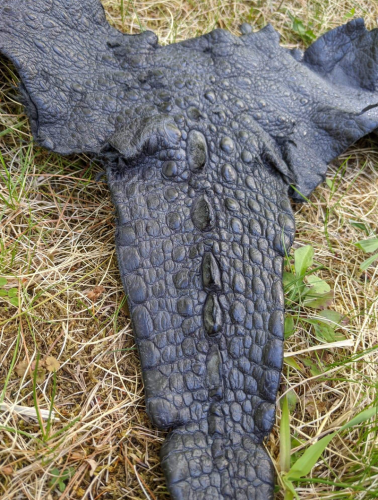The Ongoing Issue of Illegal Turtle Trade: Products, Current Situation, and Government Efforts

Photo Credit : Sonny Tumbelaka/Getty Images
Turtles, revered for their longevity and often associated with wisdom in many cultures, are unfortunately subject to extensive illegal trade. This trade involves various turtle products, which can be found in both legal and illegal markets worldwide. Here’s an overview of the situation:
Turtle Products in the Market
- Jewelry and Souvenirs : Turtle shells, especially those of the Hawksbill turtle, have been hunted for centuries to create jewelry and other luxury items. Despite international trade bans, turtle shell jewelry and souvenirs remain the most frequently seized contraband items by customs officials.

Photo Credit : Hal Brindley/TravelforWildlife
- Leather Products : Although the illegal turtle trade primarily targets Hawksbill turtles, other turtle species may also be killed for their skin to produce leather goods.

Photo Credit : Google
- Beauty Products : Beauty products can also be illegal if they contain turtle oil.

Photo Credit : Google
- Bekko : In Japan, the use of bekko (Japanese for Hawksbill turtle shell) has been ongoing for over 300 years. Even today, bekko combs remain an essential part of traditional Japanese bridal attire.

Photo Credit : Google
- Meat and Eggs : In some countries, illegal turtle meat serves as a cheaper alternative to livestock and even fish meat. Turtle eggs are also illegally harvested and sold, often under the false belief that they offer exceptional health benefits.

Photo Credit : Google
Current Situation
Despite the global ban on the international trade of marine turtles and their products under Appendix I of the Convention on International Trade in Endangered Species (CITES) since 1985, illegal cross-border trade is thriving. A recent report by CITES revealed that between 2000 and 2016, a total of 1,453 seizures of marine turtle specimens occurred globally. Another study estimates that about 44,000 turtles across 65 countries were illegally killed and exploited every year over the past decade.
Government Efforts
Governments worldwide are taking steps to combat the illegal turtle trade. In the U.S., the Fish and Wildlife Service’s Office of Law Enforcement is working to gather consistent data and coordinate efforts to regulate the trade. In Virginia, efforts include establishing replacement costs for native reptiles and amphibians, creating a facility for holding species prior to a case being brought to court, and drafting a plan for illegally removed species to return back to the wild.
In Southeast Asia, a region particularly problematic for illegal turtle trade, Chinese police are making ongoing efforts to curb the lucrative black market for turtle products. Meanwhile, Indonesia has persistent issues with the illegal animal trade, despite the country’s laws and regulations.
To effectively combat the illegal turtle trade, government representatives recommend deploying the full range of legal frameworks, public and private tools, and responses to tackle other transnational organized crimes. These efforts, however, need to be coupled with raising awareness among locals and tourists to reduce demand for these products.
The fight against the illegal turtle trade is a global issue that requires concerted efforts from governments, conservation organizations, and individuals alike. By staying informed and spreading awareness, we can all contribute to the protection and preservation of these remarkable creatures.

